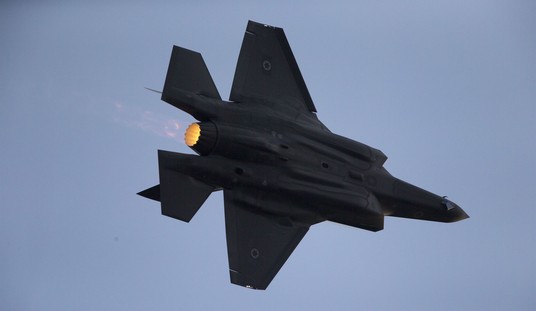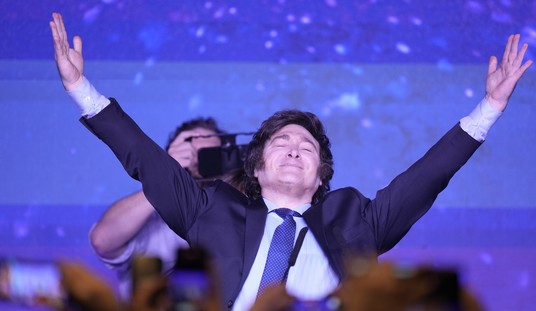 Today we’d call it a “residency.”
Today we’d call it a “residency.”
(God, I hate that word…)
This week back in 1972, the stunt was described in less lofty terms:
John Lennon and Yoko Ono would guest-host The Mike Douglas Show for five days straight.
It’s hard to come up with a contemporary parallel, since nowadays, the permanent daytime hosts are already “John and Yoko”:
Rosie O’Donnell, Whoopie Goldberg, Ellen DeGeneres and their colleagues reflexively dole out that week’s trendy received liberal wisdom, normalizing formerly taboo topics and opinions.
You see, that week in 1972 is usually remembered as “historic” and brave and radical — a laudable if inevitably awkward attempt on everyone’s part to bridge the “generation gap.”
That the voting age had just been slashed from 21 to 18 energized millions of young people, and no doubt frightened some of their elders.
(Who had nothing to worry about: That year, with the Democrats running radical anti-war candidate George McGovern, and the hippie movement supposedly ascendant and crushing everything in its cultural path, Nixon won anyhow. That didn’t turn out so well, of course, but it proves once again that the eventuality you’re most worried about is usually nothing compared to whatever actually occurs…)
We’re also informed that John and Yoko’s chosen guests were rarely seen on American television, and that Mike Douglas was a good-natured if bewildered old fuddyduddy throughout.
You know what’s coming next…
After the fifth episode was in the can, Yoko told reporters:
We wanted to do the shows to show that we are working for peace and love, and also to change the world, not with violence, but with love. And everybody that we selected is participating in efforts to change the world.
We were trying to show that not just slogans and demonstrations are gonna change the world, but we have to change the whole lifestyle. So that’s why we brought in [the] macrobiotic [cook] and this blood-pressure [biofeedback] thing, etc., to show that we’re not just freaks just sort of shouting and screaming about it, but that we think in terms of a balanced life, of changing it gradually through our daily lifestyle.
However, as Johnathan Takiff notes:
The pair’s most personal goal (never stated on the show) was to build a groundswell of support so the Nixon administration wouldn’t dare make good on its threats to deport Lennon as a menace to society.
Exactly. Scratch an altruist, find a fellow just as “selfish” as those he claims to despise.
The couple’s appearance on the program, and their earlier chats with Dick Cavett were clearly part of a Lennon charm offensive to prevent deportation.
Anti-war music, like “Give Peace a Chance,” didn’t exactly endear John Lennon to the Nixon administration. In 1971, shortly after John Lennon arrived in New York on a visa, he began associating with radical anti-war activists, and the FBI put Lennon under surveillance. The Immigration and Naturalization Service tried to deport him.
As John Wiener explained to NPR, talking about his book Gimme Some Truth:
Well, for much of 1972 and ’73, Lennon was under an order to leave the country within 60 days. He had very talented legal help and they kept getting these deadlines extended. There was a lot of people mobilized to support him, but really, it wasn’t until after Watergate, after Nixon left office, that the Gerald Ford administration immigration service finally agreed to grant Lennon his green card on very narrow legal grounds. So for two years he was under a 60 day order to leave the country, almost continuously.
Of course, had Lennon been forced to leave America for England, or elsewhere, he might be alive today.
Another example of “being careful what you wish for.”
Somehow Douglas summoned the nerve to invite John Lennon and Yoko Ono to co-host for a week in 1972.
That comment from a writer at The Nation is typical: snobbish, ignorant and profoundly unfair.
From the earliest days of the civil rights movement, Douglas featured more black leaders than any other show on national TV, from Stokely Carmichael to Malcolm X to Angela Davis to Jesse Jackson to Martin Luther King to Bobby Seale. He liked people and it showed. He was innately curious. Mike was not a true intellectual, whatever that tired word really means, but he was smart enough to know his own limitations and smart enough to carry on an interesting conversation with just about anyone.
With uncharacteristic immodesty, Douglas later said:
On a cumulative basis, we had the most controversial guest list in the history of television. It just didn’t seem that way because we never tried to put anyone on the spot, never forced a confrontation, never asked for trouble. No matter who it was, what they stood for, or what they had to say, we tried to be fair, to give the same unbiased forum to everyone.”
He exaggerates, but that, too, is the point.
John Lennon and Yoko Ono’s “revolutionary” guest list that week included Ralph Nader, a household name for years thanks to his 1965 book Unsafe at Any Speed. He was a regular guest on talk shows, day and night.
Other “controversial” guests who Americans supposedly never got the chance to see and hear included Yippie Jerry Rubin, the ubiquitous Chicago Seven defendant, and his co-defendant, Black Panther Bobby Seale. Neither of these gentlemen were camera shy. The notion that the poor benighted housewives who made up Douglas’s audience were unaware of them was ludicrous.
I grew up watching these talk shows, and can assure you:
During the same era, Phil Donohue carved out a robust niche for himself by booking counterculture luminaries almost daily. (That clip of him squaring off with Rubin dates from 1970.) Dick Cavett did likewise.
That’s why the John and Yoko “residency” on the Douglas Show leaves me a bit cold. It seems like another pop culture artifact people are determined to mis-remember to suit their own nostalgic agendas.
By far the most famous segment during that one-week gig comes when Lennon welcomes his childhood hero, Chuck Berry.
Years later, Keith Richards would react with astonishing self-control as Berry — his hero as well — browbeat him in front of other musicians.
I like to think Richards had seen Berry’s reaction to Yoko’s attempt to “sing” with him back in 1972, and filed the sight (and sound) away for future use.
Maybe it was once more thing Richards learned from the master.
(Extreme language warning:)
http://www.youtube.com/watch?v=Le4pcd7B_cY








Join the conversation as a VIP Member